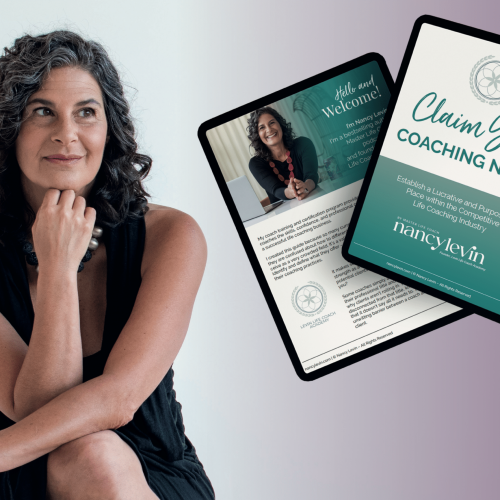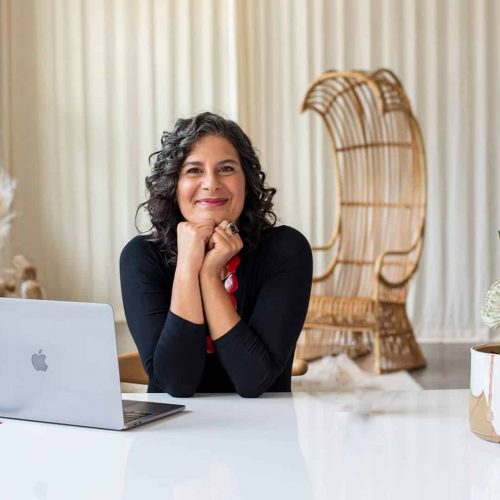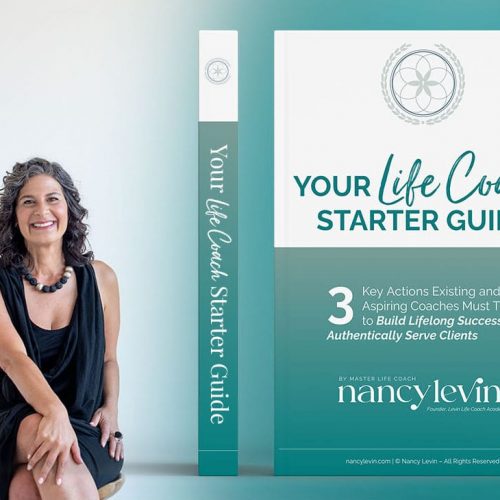Most cultures around the world have historically revered martyrdom.
We’re taught that self-sacrifice is a virtue; that the more we take care of others, the better.
From the time we’re little kids we get the message—in school and often at home—that we aren’t worthy of love unless we’re “good.” And what does “goodness” mean?
It means keeping others happy, even if it means sacrificing our own happiness in the process. It also means never rocking the boat because it could lead to conflict and discord.
But the problem with that kind of thinking is that it doesn’t leave room for a mutually collaborative relationship where communication and respect take center stage.
Studies are starting to correlate self-sacrifice with depression and high stress.
When we don’t take care of ourselves, our health, well-being, our relationships suffer.
Yet, we still insist on overgiving until exhaustion, and don’t even realize that we might be drawing over-takers into our lives.
It only makes sense.
If you need to be selflessly taking care of others in order to feel safe, you’ll need to find others who are willing to receive your devoted care!
And while you may feel resentful of the takers in your life, the truth is that if you weren’t constantly giving, there would be no need to blame or judge others for their taking!
You continue down a path of giving because you don’t want to be seen as a “bad” person or “selfish” for not meeting others’ needs. Add in your fear of conflict . . . and you end up in a never-ending cycle where you feel depleted, angry and unsure how to get what you want out of our most important relationships.
You tell yourself you can “handle it”. Or that everyone you know is dealing with it, so you should too.
But have you ever stopped to think that relationships shouldn’t be about “handling it”?
I recognize that the fear of conflict can be great.
When we’re afraid to set a boundary, we justify and rationalize the impact that not setting it will have on us.
But the more we resolve to simply “handle it”, it begins to take its toll in the form of buried resentments. And whether we admit it to ourselves or not, resentment has a way of working itself to the surface, no matter how hard we try to keep it at bay.
We might snap at our child or become passive aggressive with our spouse or a coworker, doling out our repressed anger in destructive ways
Over time, we might blow up with rage or, as in my case, behave in a way that completely demolishes a relationship.
When we say “yes” when what we really want to say is “no effing way,” we end up in a loop where we feel we have to say “yes” over and over and over. It feels like the easy way out.
But trust me—as someone who did that for many years in my marriage—it isn’t the easy way out at all.
It may hold outer conflict at bay for a while, but it amplifies our inner conflict tremendously.
Even if you feel like you’re the most disciplined, committed over-giver on the planet, you can’t bury your needs or feelings forever. They will still arise.
And when they do finally surface, they often cause more damage or destruction than if we had addressed the conflict in the first instance.
All you have to do is think back to how much resentment or anger you’ve held against someone for being a taker to know that this is true!
So, instead of constantly repressing your needs and building resentment, it is essential that you begin to set boundaries and learn how to express yourself in your most cherished relationships.
One of the most radical concepts I shared in my book, Permission to Put Yourself First, is that you can still care about another person without “taking on” their emotions or problems… you don’t have to lose yourself in love.
What that means in practice is that while you may care about your partner, it’s not your job to shield them from pain or from the realities of life.
You can still love someone and not carry the burden of their reaction.
Being able to separate yourself from your partner’s emotions allows you to support your needs and empower your partner to take charge of their own. It’s an important first step if you want to have a relationship based on collaboration.
Once you can see that you take your partner’s power away by taking responsibility for his or her needs, you allow yourself to shift and get clear what you actually want in the first place.
Now, I understand that all of this may feel uncomfortable at first, but the more you begin to separate your feelings from your partner’s, the better you’ll be able to step in the temporary discomfort of stating your needs and setting boundaries.
One thing I often recommend is if you find the idea of separating yourself from your partner’s feelings difficult ask yourself: ‘What if I made my own joy a priority for just one day?”
If that’s too difficult, try it for one hour and extend it until you become accustomed to checking in with your own desires and making them as important as the desires of your partner.
The #1 reason most people don’t set boundaries is that they don’t know what to say. Let me help you find the words you need to have difficult conversations! Download Boundary Badassery, The Pocket Guide
Once you’ve gotten comfortable with owning your desires, you’re able to live with the discomfort of setting effective boundaries.
It may feel as if you’ll never get the hang of this, but once you create the space for your needs to be heard, it will become easier to live with the discomfort of sharing your needs with your partner.
I often say to clients that the willingness to feel the short-term discomfort of setting boundaries is the key to having everything you want in life!
It’s true.
Recognizing that most of what you fear is built up in your head can allow you to see that feeling the discomfort is not going to kill you. It may not feel good temporarily, but the truth is that on the other side of that discomfort lies your freedom, joy and peace.
It may be uncomfortable to say no, or that doesn’t interest me . . . but when you do, you open up the possibility of discussion and common ground so you can find places where both your needs are met!
Instead of seeing setting relationship boundaries as dangerous, what if you could see them as an opportunity for growth!
Differences can lead to discussions and help you move from a win-lose proposition to a win-win situation for both of you. It can be an opportunity to truly connect instead of simply acquiesce.
In the end, it can mean that you actually find true harmony instead of the false facade of one that results when you keep quiet.
So, instead of the stress and resentment you might be feeling now, you find the satisfaction and freedom you crave!
Sound good?
It is. And it begins with simply being willing to let go of responsibility for others and stepping into the discomfort that leads to your joy!
I hope you’ll take the first steps this week and take charge of your boundaries today!
xo
Nancy
P.S. You can now pre-order my book Setting Boundaries will Set You Free: The Ultimate Guide to Telling the Truth, Creating Connection and Finding Freedom. And when you do, you’ll receive access to my new FREE Live video workshop, Zen & the Art of Boundary Maintenance: Holiday Edition on December 17th so you can give yourself the gift of peaceful boundaries this holiday season!









